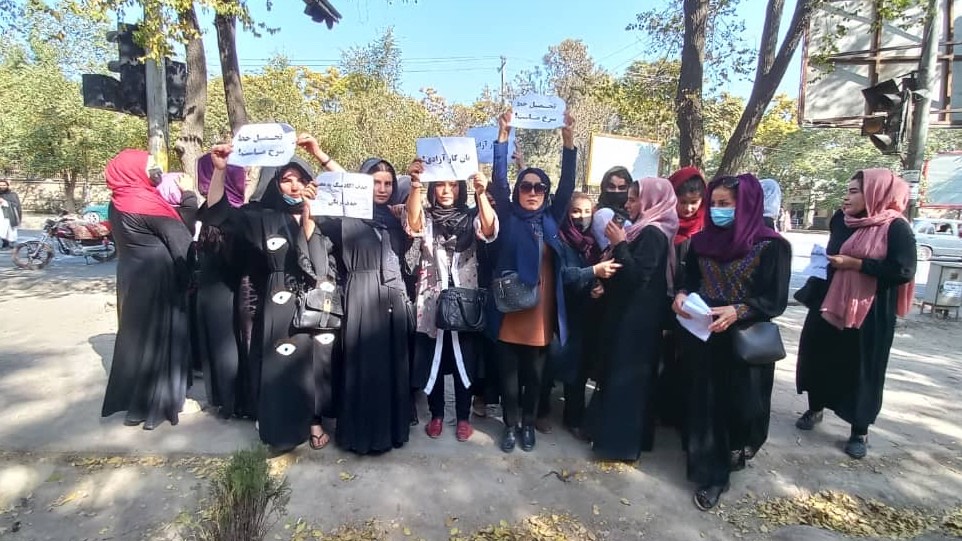Amnesty International issued a statement on Saturday urging the international community to take action in protecting the rights of women and girls in Afghanistan, who “have been deprived of their basic rights and freedoms.”
“In Afghanistan, a profound struggle is unfolding, where women and girls face persecution based on their gender,” stated the human rights organization.
“Trapped under the oppressive rule of the Taliban, women and girls have been stripped of their fundamental rights and freedoms. They are no longer allowed to participate in public and political spheres; their voices have been silenced, their dreams shattered. Opportunities for education and professional growth have been snatched away. Restricted from dressing and moving freely, they have been confined to the shadows,” Amnesty International added.
The organization also highlighted that in Afghanistan, any form of defiance is met with brutality and violence. Arbitrary detentions, torture, and a blatant disregard for their fundamental human rights have become commonplace, it added.
“The actions of the Taliban may amount to crimes against humanity. It is time for the international community to take action. Justice and accountability must prevail. Afghan women and girls deserve better. They deserve justice. They deserve equality. They should not be persecuted because of their gender,” concluded Amnesty International.

Muzhgan Feraji, a human rights activist, stated, “Many statements have been sent to the Taliban by international organizations, but they have paid little attention to them because their nature goes against the principles of international law. Therefore, it is time for the international community to take concrete actions instead of issuing statements.”
Among the restrictions imposed by the Taliban, secondary schools have remained closed for girls for almost two years.
Nazanin, a 12-year-old girl, would have started seventh grade this year if schools were open for girls. Instead, she now sells water on the streets of Kabul, facing an uncertain future.
“I sell water from morning till evening. I go home when I run out of water. If schools were open, I would have been in the seventh grade this year,” said Nazanin.
Furthermore, women have been prohibited from attending universities and working in non-governmental agencies since last September.
“There are targeted attacks, former government officials are imprisoned, forced marriages are conducted by the Taliban… People sell their children to earn food, and women are deprived of their basic rights,” expressed Tahira Nasiri, a women’s rights activist.
While the Taliban has repeatedly claimed to ensure “all rights of women” based on Sharia law, many religious scholars have questioned the Taliban’s restrictions on education, stating that they are not in accordance with Islamic laws.





